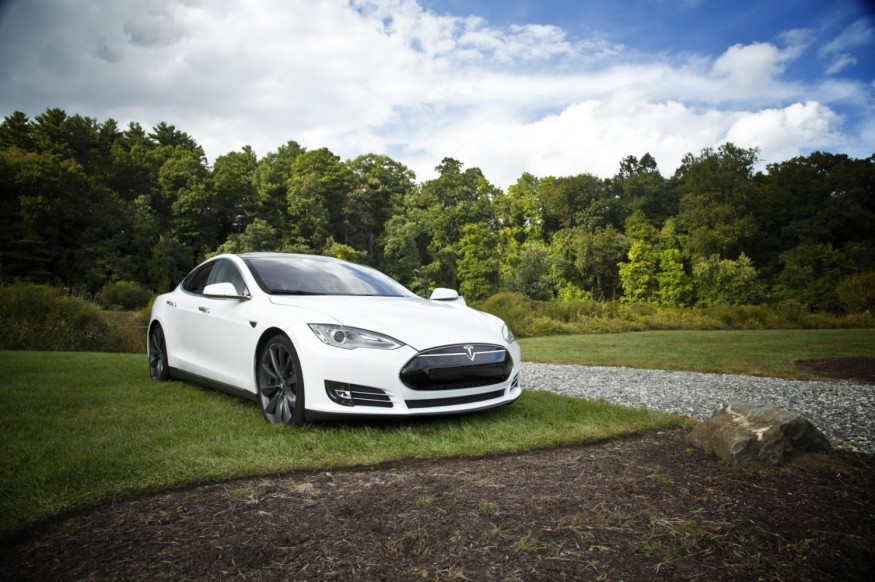It's Electrifying: Are All Teslas Electric?

Tesla has been all over the news these past few years. This is thanks to several factors.
First off, their stock continues to grow higher and higher. Second, the company's CEO, Elon Musk, seems to be a controversy magnet. And third, as people become more aware of their ecological impact, they are turning to alternative fuel vehicles like Tesla's electric car.
If you're wondering "are all Teslas electric?" then continue reading to find out more.
Are All Teslas Electric?
Yes, all Teslas are electric. This is the company's main selling point to consumers. They've been electric since their first vehicle, the Roadster, came out in 2008.
In fact, the company doesn't just make all-electric cars and trucks, but they also make clean energy storage products and generators. All of the company's vehicles are produced at Tesla's factory in Fremont, California. This is also where most of the components for their cars are manufactured.
In order to make their factories as safe as possible, the company requires that their employees go through a multi-day training program.
Aside from making cars that run on alternative energy, they also make Solar Roof, Powerpack, and Powerwall. These are energy solutions that allow utilities, businesses, and homeowners to manage their renewable energy consumption, storage, and generation.
Tesla also manufactures its own batteries so they can reduce costs and meet the volume that's required to bring their products to market.
How Does a Tesla Vehicle Work?
A Tesla vehicle runs on a powerful battery that is charged via electricity. This gives the car the power it needs to work for a certain period of time. This battery is actually quite similar to the ones that you can find on your smartphone and your laptop.
This is because Tesla utilizes lithium-ion batteries to energize their vehicles. Don't be mistaken, though. These batteries are super powerful.
In fact, the battery inside of a Tesla vehicle is made from several thousand lithium-ion cells. This also means that the battery weighs a lot.
How much does it weigh? Several thousand pounds would be the answer to that question.
All of these batteries are made at their factory in Fremont, California. This helps them keep costs down while ensuring that the durability and quality you would want are guaranteed. Also, all of their batteries come with a dedicated heating system.
This heating system is put in place to help people start their vehicles when it's cold outside. People who purchase and own a Tesla shouldn't have to worry about experiencing any battery issues for many years to come.
How Does the Battery Work?
Tesla's lithium-ion battery is rechargeable. The new Model S Tesla can drive about 370 miles on one full charge. This is generally around how much you'll get with a full tank of gas in a standard sedan.
When the battery becomes depleted, you'll have to recharge it. Recharging a Tesla vehicle isn't that different from recharging the portable devices that you use in your day to day life.
However, this is one of the primary differences between using a hybrid vehicle like the Toyota Prius and a Tesla vehicle. A hybrid car is going to use a battery along with hydrocarbon fuel in order to power the vehicle. A Tesla vehicle, on the other hand, only uses its rechargeable battery for power.
In a hybrid, the battery will recharge on its own as you drive the car. This doesn't happen with a Tesla car. You're going to have to charge it at your home or a dedicated charging outlet.
There are a couple of different ways that a Tesla vehicle owner could recharge their car. The best option would be to find a professional electrician who can install a recharging station in your home. If that isn't possible, it's recommended that you plug your Tesla car into a 100-volt outlet so that you can recharge the battery.
Tesla has also gone ahead and installed hundreds of charging stations all over the country to make it easier for their drivers.
The Motor
All Tesla vehicles come with a small motor. It's roughly around the same size as a watermelon.
This is one of the most recent advances in electronic engineering. The motor is able to convert electrical energy that it takes from the batteries and turns that energy into mechanical power. This is how it's able to move the car.
When compared to standard combustion engines within most cars, Tesla's motor is much more energy-efficient. The induction motor in a Tesla is able to generate 270 kW of power, and it weighs around 32 kg. A standard combustion engine, on the other hand, puts out 140 kW of power and weighs about 180 kg.
Also, a standard engine generates usable power and torque within a very limited range. Because of this, you need a complex transmission in order to connect the engine to the drive wheels.
A Tesla motor remains constantly efficient from zero rpm all the way to around 18,000 rpm. The Tesla Model S, like most electric vehicles, utilizes a simple single-speed transmission.
All of these reasons help to explain the popularity of Tesla. And why so many investors are currently seeing Tesla stock exploding.
The Answer to the Question: Are All Teslas Electric?
As we can see from the above article, not only are all Teslas electric, but they're also supremely energy efficient. If you're looking for a car that's powerful and efficient, a Tesla may just be the vehicle for you.
Interested in reading other helpful articles? Check out the rest of our blog today for more!
Subscribe to Latin Post!
Sign up for our free newsletter for the Latest coverage!
© 2026 Latin Post. All rights reserved. Do not reproduce without permission.















